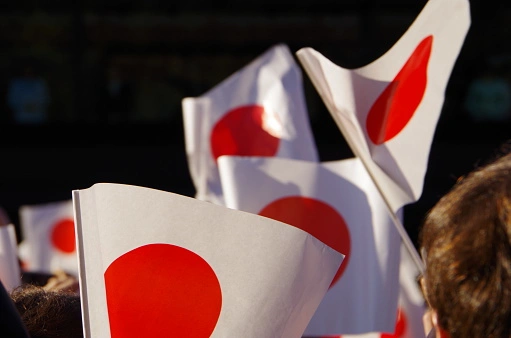The 6 Most Famous Emperors of Japan
These famous emperors of Japan have not only become part and parcel of the rich cultural heritage of the Japanese people, they have the oldest living emperors still in rulership.
In fact, it is popularly believed that the origin of this particular monarchical system in Japan stretches as far back as 660 BC proving how the people of Japan hold this part of their culture in high esteem.
Interestingly, we have famous emperors of Japan because to a large extent, they are more powerful that elected officials. These famous emperors of Japan are regarded as an emblem of national unity, progress and nationalism.
Down the years since the first reign of emperors in Japan in the person of Jimmu, there have been hundred emperors who have occupied this honourable seat, but only the ones who have made tremendous achievements are recognized as the famous emperors of Japan.
There is ample proof to suggest that there has been no break in this particular hereditary line since Jimmu took the reins of power in 660 BC. For more than a millennium, specifically, an incredible 1500 years, there has been without fail, an emperor from this royal ancestry installed as an emperor.

List of Famous Emperors of Japan
Hirohito
He was also known as Emperor Showa and would be fondly remembered in the history of Japan as the longest-serving emperor in Japan.
The sixty-year rule which spanned from 29 April 1909 to 7 January 1989, ensured he was also Japan’s most famous war criminal. This identity was conferred to him because of his huge involvement in the second world war.
The Japanese people not only reckon him as one of the most famous emperors of Japan but also, he is believed to be the finest military personnel that the Japanese had ever produced despite the fact that some period in his reign was marred with brutality.
Does it matter anymore? Certainly, not for the Japanese people who since their capitulation in the war, did not impose any form of penalty whilst Hirohito was alive.
Jimmu
You can’t possibly have a conversation about the most famous emperors of Japan, without finding a way to put in Emperor Jimmu.
Asides from being the first-ever emperor to be installed, he would be remembered for his military conquest that took several years to get which has led to the country we all know as Japan.
History reveals that the final battle that eventually led to the takeover of Yamato, saw a golden bird resting on his bow and which as a result, blinded the eyes of his opponents and gave him an advantage over them. It was this victory that ensured he sat as the emperor in Japan.
In honour of that victory, February 11 was announced as a public holiday by the Meji government to commemorate arguably the ascendance to the throne by one of the most famous emperors of Japan.
Kigensetsu was the name given to the holiday, and it was scrapped a few years after the war to be replaced in 1966 as National Foundation Day.
Akihito
According to tradition, only the first male son was eligible to sit on the coveted throne of the emperor in Japan. Emperor Akhito was the first-born son of Emperor Hirohito and Empress Nagako which automatically meant he was an heir apparent to the throne after the death of his father.
With his education in 1940 at the Peers School, Akhito had the same upbringing as the other heirs before him. The start of the second world war, saw him leave his home country, Japan until some years after the war was over in 1949.
The war had such an adverse effect on the nation of Japan because the power of an emperor was taken away and became only ceremonial.
You could say all these events played out to the good of Emperor Akihito because, during the war, he received western education and was taught by the American Quaker in person Elizabeth Gray Vining. This was what eventually set him up for a career in marine biology.
The year 1952 was a historic event for Japan not only because their heir apparent to the throne was announced but also because the 1500 years record was put away when Emperor Akihito married Empress Shoda Michiko who was a commoner and the daughter of a thriving Japanese businessman.
Undoubtedly, this event was what made him one of the most famous emperors of Japan and their union produced Naruhito, their firstborn son.
Naruhito
Emperor Naruhito would be remembered for being the first to step in over two hundred years for an emperor who stepped down.
His installation as the 126th emperor in Japan was characterized by customary practices and the famous Sokui No Rei, the famous transition ceremony when he announced himself as the emperor of the entire world.
That event was graced by quite a number of notable individuals around the countries of the world, from German president, Frank-Walter Steinmeier to the British crowned prince, Charles. This must have cemented his place as one of the most famous emperors of Japan.
Reports have it that right on the heels of that ceremony, the newly crowned emperor proclaimed amnesty to more than 500,000 people who were convicted of petty crimes such as traffic violations.
Even though this pardon was a normal occurrence when a new emperor was installed, nonetheless, it drew the ire of many people who believed that it was against the democratic provisions of the constitution to do so.
Meiji
His rule as one of the most famous emperors of Japan which spanned for nearly forty-five years couldn’t have come at a better time.
It was such a time Japan was in the middle of a transition from a traditional society to a world global power. His reign made it easy for the Japanese to accept western culture from their style of clothing to even their choice of meals.
Emperor Meiji became a Japanese emperor when the Tokugawa shogunate was brought to an abrupt end and the consequent return of sovereign imperial rule over the Japanese territory.
Kammu
Did you know that Heian-Kyo was once the capital of Japan until 1868? Well, this certainly was one of the achievements that Emperor Kammu which makes a strong case for him being among the most famous emperors of Japan.
Born in 737 in the city of Nara in Japan, Emperor Kammu was not only the brain behind making Heian-Kyo the capital city, but also, his rule had to battle against Buddhist opposition which culminated in him passing a decree to limit the construction of Buddhist temples.
Conclusion
You can’t deny that Japan isn’t only one of the most populous cities in the world, but also doubles as having one of the most exciting historical stories and city-to-city.
It just shows how the once traditional nation has morphed into a country that has a huge part to play in world matters. Without a doubt, one of those stories has to do with those their famous emperors.






